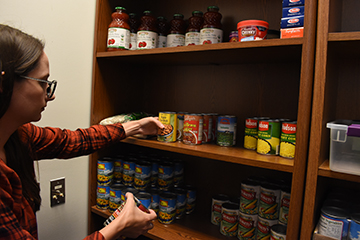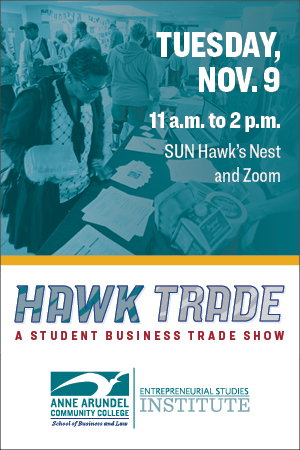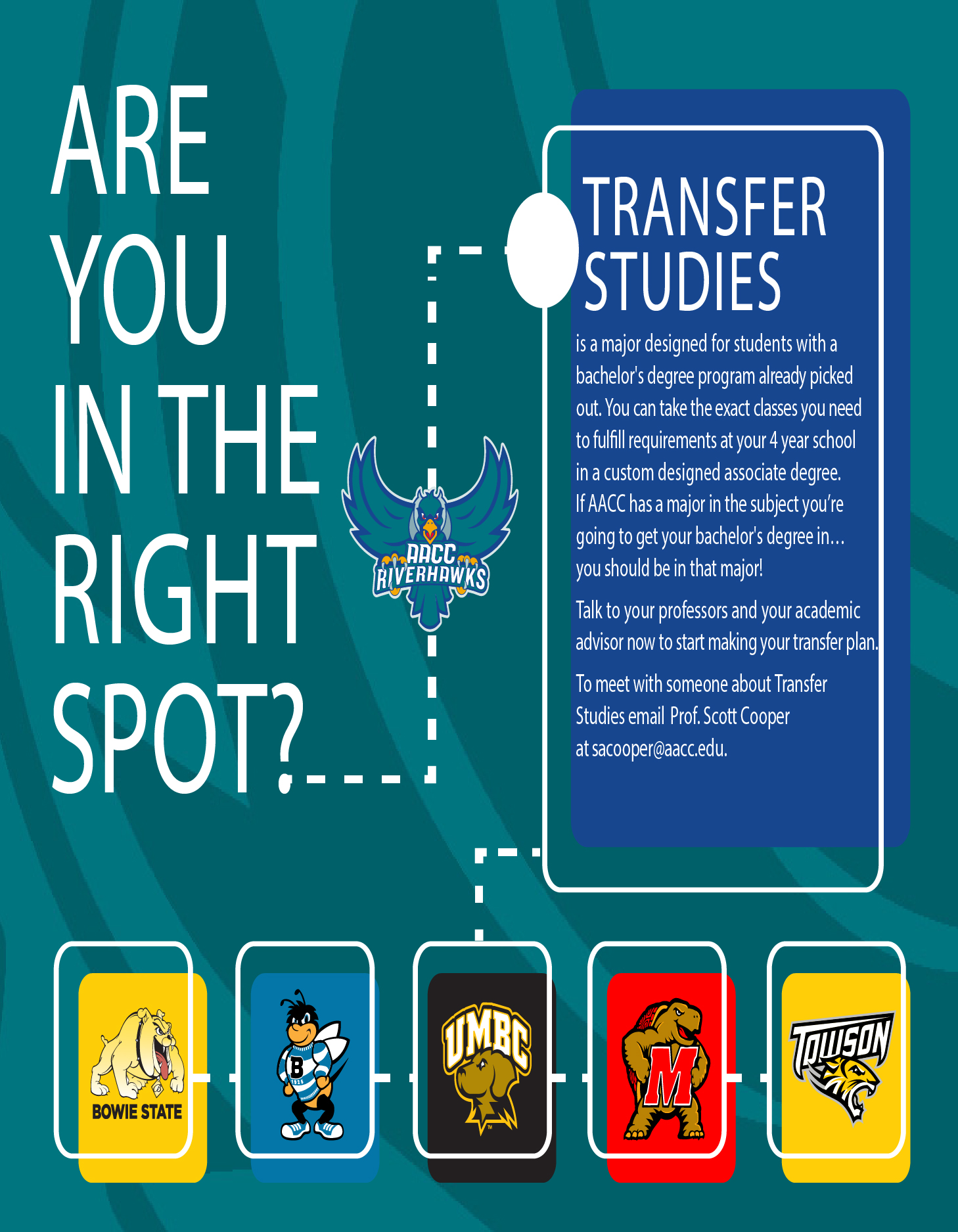Specialist discusses AACC, county poverty

A specialist who spoke at AACC says poverty affects students’ grades and experience. Pictured: A student worker selects items from the campus food pantry.
October 1, 2019
A specialist in the impact of poverty on families told faculty in August that an increasing number of AACC students are homeless or have no access to healthy food.
Dr. Pamela Brown, the executive director of the Anne Arundel County Partnership for Children, Youth and Families, named the three biggest needs of county residents as transportation, affordable housing and affordable, quality healthcare.
In an interview with Campus Current, Brown said students who live in poverty can find schoolwork to be a greater challenge than their middle-class peers.
“[Poverty affects students] in all the ways you can imagine,” Brown said. “[They have] less time for studying, more anxiety, more stress [and] competing priorities. … Not only does it affect
grades, it impacts whether they finish a semester, whether they stay at the college [and] whether they give up and [drop out].”
Brown cited data from MIT showing that a single parent with one child in Anne Arundel County must earn about $60,000 to get by.
“You have to make $60,000 … just to be OK,” she said.
She said students who have children often cannot afford childcare, which she called “massively expensive.”
Students who live in poverty said it affects their ability to succeed in school.
“Poverty affects me in every way you could imagine: socially, financially, academic[ally] [and] spiritual[ly],” said one student, whose identity Campus Current agreed to conceal. “I don’t have the opportunities that other people might have.”
The student, who does not own a computer, added: “I can’t do homework when I’m at home because most assignments have to be submitted through Canvas, so I have to work around other people’s schedules to get a ride here because I can’t afford a car or a Lyft. So sometimes I just have to fail quizzes [and miss homework assignments]. I simply can’t keep up. … And I have to do what I can when I can.”
Another student said poverty “affects me in the sense that it bothers me; it’s on my mind and sometimes it takes [until the] last minute for me to do my schoolwork.”
One student praised the school’s efforts and teachers who try to help them, but said money is still an issue.
“You got to pay for the bus, you got to pay for books,” the student said. “You got to pay for … stuff that I don’t have the money to pay for.”










